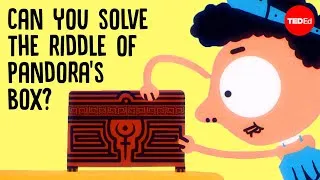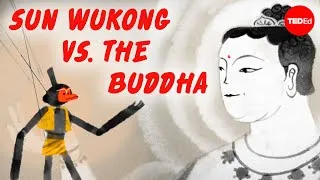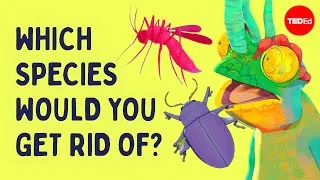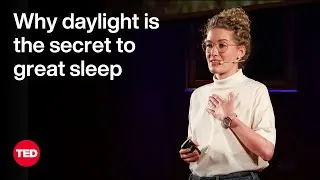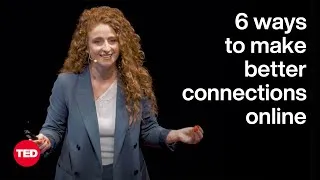請雙擊下方英文字幕播放視頻。
譯者: YuPin Song
審譯者: Regina Chu
00:06
Many of us have hundreds of things
on our minds at any moment,
0
6530
3681
我們每一刻都在腦中
想著數以百計的事情
00:10
often struggling to keep track
of everything we need to do.
1
10211
3283
通常都在想我們必須完成的事
00:13
But fortunately,
2
13494
1114
但幸運的是
00:14
there's one important thing
we don't have to worry about remembering:
3
14608
3698
有一件重要的事我們不用擔心忘記
00:18
breathing.
4
18306
1412
那就是呼吸
00:19
When you breathe, you transport oxygen
to the body's cells to keep them working
5
19718
4433
我們呼吸時會傳送氧氣到身體的細胞
讓身體持續運作
00:24
and clear your system
of the carbon dioxide
6
24151
2433
也使體內因此產生的
00:26
that this work generates.
7
26584
2433
二氧化碳能夠排除
00:29
Breathing, in other words,
keeps the body alive.
8
29017
2434
換句話說
呼吸能讓我們活下去
00:31
So, how do we accomplish
this crucial and complex task
9
31451
3427
所以我們該怎麼在不自覺的情況下
00:34
without even thinking about it?
10
34878
1922
完成這重要又複雜的任務呢
00:36
The answer lies
in our body's respiratory system.
11
36800
2846
答案就存在我們體內的呼吸系統
00:39
Like any machinery,
it consists of specialized components,
12
39646
3489
就像任何機器一樣
它包含了專門的元件
00:43
and requires a trigger
to start functioning.
13
43135
2515
也需要一個開關來啓動這功能
00:45
Here, the components are the structures
and tissues making up the lungs,
14
45650
4006
而要件就是組成肺的結構與組織
00:49
as well as the various other
respiratory organs connected to them.
15
49656
3771
同時也包括許多
連結到肺部的呼吸器官
00:53
And to get this machine moving,
we need the autonomic nervous system,
16
53427
4094
要讓這機器運作
我們需要自主神經系統
00:57
our brain's unconscious control center
for the vital functions.
17
57521
4049
我們大腦中無意識的控制中心
負責重要的功能
01:01
As the body prepares
to take in oxygen-rich air,
18
61570
3418
當身體準備好接受滿滿的氧氣時
01:04
this system sends a signal
to the muscles around your lungs,
19
64988
3249
系統會發送信號到肺部周圍的肌肉
01:08
flattening the diaphragm
20
68237
1686
使橫隔膜拉平
01:09
and contracting the intercostal muscles
between your ribs
21
69923
3226
肋骨間的肋間肌會收縮
01:13
to create more space
for the lungs to expand.
22
73149
3348
創造更多空間讓肺擴張
01:16
Air then wooshes into your nose and mouth,
23
76497
2329
空氣會咻的進入鼻腔和口腔
01:18
through your trachea,
24
78826
1254
經過氣管
01:20
and into the bronchi
that split at the trachea's base,
25
80080
3260
到底部後分裂進入支氣管
01:23
with one entering each lung.
26
83340
2276
再分別進入兩個肺
01:25
Like tree branches, these small tubes
divide into thousands of tinier passages
27
85616
4905
就像樹枝一樣
這些氣管又分成數以千計更小的通道
01:30
called bronchioles.
28
90521
1702
稱作小氣管
01:32
It's tempting to think of the lungs
as huge balloons,
29
92223
2682
把肺想成是一個大氣球
01:34
but instead of being hollow,
they're actually spongy inside,
30
94905
3561
但裡面不是空空如也
而是像海綿一樣
01:38
with the bronchioles running
throughout the parenchyma tissue.
31
98466
3176
當小氣管觸及到實質組織
01:41
At the end of each bronchiole
is a little air sack called an alveolus,
32
101642
4827
每個小氣管的底端都有小小的氣囊
稱作肺泡
01:46
wrapped in capillaries
full of red blood cells
33
106469
2913
肺泡周圍包著微血管
裡面充滿著血紅細胞
01:49
containing special proteins
called hemoglobin.
34
109382
3163
裡面包含特別的蛋白質
叫做血紅蛋白
01:52
The air you've breathed in
fills these sacks,
35
112545
2439
我們所吸入的空氣會充滿這些氣囊
01:54
causing the lungs to inflate.
36
114984
1744
使肺部膨脹
01:56
Here is where the vital exchange occurs.
37
116728
2395
而這裏就是呼吸交換的場所
01:59
At this point, the capillaries
are packed with carbon dioxide,
38
119123
3476
這時微血管會充滿二氧化碳
02:02
and the air sacks are full of oxygen.
39
122599
2793
而氣囊裡會有滿滿的氧氣
02:05
But due to the basic process of diffusion,
40
125392
2431
但因為擴散的基本過程中
02:07
the molecules of each gas
want to move to a place
41
127823
3318
各氣體的分子
會移動到該種類濃度較低的地方
02:11
where there's a lower concentration
of their kind.
42
131141
3086
02:14
So as oxygen crosses over
to the capillaries,
43
134227
2365
所以當氧氣通過微血管時
02:16
the hemoglobin grabs it up,
44
136592
2212
血紅蛋白會把它捕捉起來
02:18
while the carbon dioxide
is unloaded into the lungs.
45
138804
3355
同時二氧化碳會充滿肺部
02:22
The oxygen-rich hemoglobin
is then transported throughout the body
46
142159
3379
充滿氧氣的血紅蛋白接著會靠著血液
02:25
via the bloodstream.
47
145538
1533
來傳送到全身
02:27
But what do our lungs do
with all that carbon dioxide?
48
147071
2911
但我們的肺部該拿二氧化碳怎麼辦呢
02:29
Exhale it, of course.
49
149982
1641
當然
靠著呼氣囉
02:31
The autonomic nervous system
kicks in again,
50
151623
2532
自主神經系統又一次啟動
02:34
causing the diaphragm to ball up,
51
154155
2141
使橫隔膜鼓起
02:36
and the intercostal muscles to relax,
52
156296
2278
肋間肌會放鬆
02:38
making the chest cavities smaller
and forcing the lungs to compress.
53
158574
4010
讓胸腔縮小並使肺部壓縮
02:42
The carbon dioxide-rich air is expelled,
and the cycle begins again.
54
162584
4206
滿滿的二氧化碳會排出
而循環會再一次開始
02:46
So that's how these spongy organs keep
our bodies efficiently supplied with air.
55
166790
4470
這就是這些像海綿般的器官
如何有效率讓身體充滿空氣
02:51
Lungs inhale and exhale
between 15 and 25 times a minute,
56
171260
4164
肺每分鐘會呼吸 15 到 25 次
02:55
which amounts to an incredible
10,000 liters of air each day.
57
175424
4517
很驚人的
每天呼吸的空氣總量有一萬公升
02:59
That's a lot of work, but don't sweat it.
58
179941
2089
這可是很大的工作量
但別緊張
03:02
Your lungs and
your autonomic nervous system
59
182030
2165
你的肺和自主神經系統
03:04
have got it covered.
60
184195
1500
會負責完成
New videos
關於本網站
本網站將向您介紹對學習英語有用的 YouTube 視頻。 您將看到來自世界各地的一流教師教授的英語課程。 雙擊每個視頻頁面上顯示的英文字幕,從那裡播放視頻。 字幕與視頻播放同步滾動。 如果您有任何意見或要求,請使用此聯繫表與我們聯繫。


